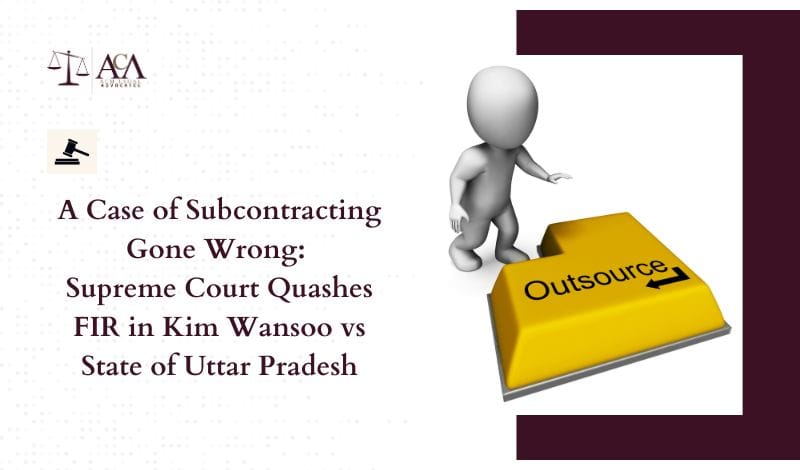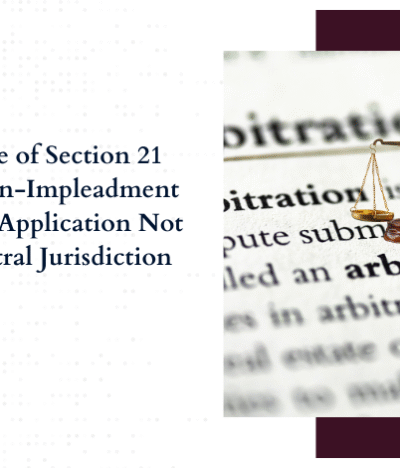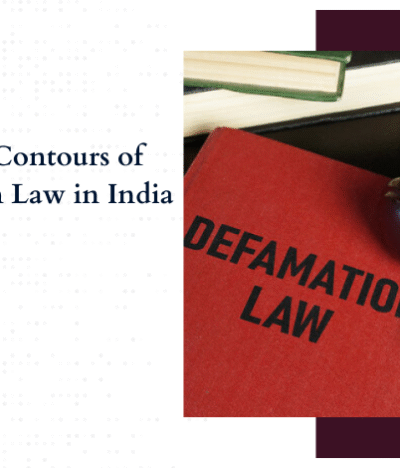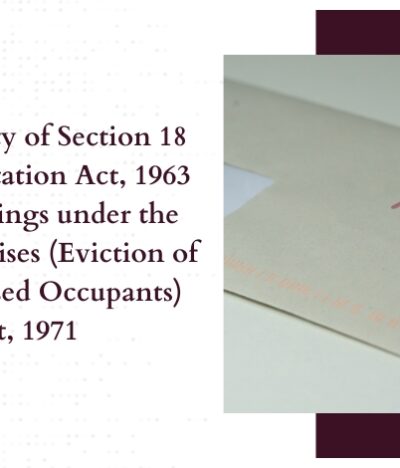This case analysis delves into the Supreme Court’s decision to quash an FIR filed against Kim Wansoo, a foreign national and Project Manager of Hyundai Engineering & Construction India LLP (HEC India LLP). The Court’s judgment reflects its vigilance in ensuring that criminal proceedings are not misused for ulterior motives, especially in matters that primarily concern civil disputes. This decision is pivotal in reaffirming the principles of justice and safeguarding individuals from vexatious litigation. By examining the legal framework and applying established judicial principles, the Supreme Court demonstrated its role as a protector of judicial integrity and individual rights.
Background Of The Case
The origins of the case trace back to an FIR registered as No. 64/2020 at Police Station Sadar Bazar, District Meerut, alleging offenses under Sections 406, 420, 323, 504, 506, and 120-B of the Indian Penal Code (IPC). The FIR was lodged by a partner of M/s R.T. Construction, who claimed that his firm was cheated out of dues worth approximately ₹9 crores for labour supplied through a complex subcontracting chain.
The dispute arose when Hyundai Motor India Limited awarded a construction project to HEC India LLP. HEC India LLP subcontracted the work to KOTEC Automotive Services, which further engaged YSSS India Construction Pvt. Ltd. (YSSS). The complainant’s firm was engaged through YSSS to provide labor. Despite completing the assigned work, the complainant alleged that payments were dishonored, cheques bounced, and threats were issued against him and his family. The complainant attributed the trauma and stress from these events as contributing to his brother’s death.
The appellant, Kim Wansoo, was named in the FIR as one of the accused, despite his position as a project manager without any direct dealings in the alleged transactions. The complainant sought criminal proceedings as a means to recover the unpaid amount.
Legal Provisions
Several key legal provisions played a central role in this case:
- Article 226 of the Constitution of India: This article empowers High Courts to issue writs to protect fundamental rights and to ensure justice by addressing abuses of legal processes. The appellant invoked this provision to seek the quashing of the FIR.
- Section 482 of the Code of Criminal Procedure (Cr.P.C.): This section grants inherent powers to High Courts to prevent abuse of the legal process and to secure the ends of justice. The Supreme Court relied on this provision to quash the FIR.
- Indian Penal Code (IPC): The FIR invoked Sections 406 (criminal breach of trust), 420 (cheating), 323 (voluntarily causing hurt), 504 (intentional insult to provoke breach of peace), 506 (criminal intimidation), and 120-B (criminal conspiracy). The Court analyzed whether these charges were substantiated by the allegations.
Analysis Of The Case
Detailed Scrutiny of Allegations
The Supreme Court meticulously examined the allegations in the FIR and found them insufficient to sustain criminal proceedings. The FIR primarily attributed the non-payment of dues to YSSS India Construction Pvt. Ltd. (YSSS), which was involved in issuing dishonored cheques. Despite being named as one of the accused, there was no direct evidence to link the appellant, Kim Wansoo, to the alleged fraud or breach of trust. The vague and unsubstantiated claims against the appellant underscored the absence of prima facie evidence.
The Court highlighted that the appellant, as a project manager, did not have any personal involvement in the financial dealings between the subcontractors and the complainant. His inclusion in the FIR appeared to be an attempt to pressurize the higher management of Hyundai Engineering & Construction India LLP (HEC India LLP), rather than based on substantive grounds.
The Nature of the Dispute
One of the pivotal points in the Court’s analysis was recognizing the civil nature of the dispute. The Court noted that the essence of the complaint was the recovery of dues, a matter inherently falling under civil law. While the complainant sought to invoke criminal provisions, the allegations did not disclose any intentional deception, fraudulent intent, or criminal conspiracy by the appellant. The Court observed that the complainant’s attempt to use criminal law as a tool for recovering unpaid amounts was a misuse of the legal process.
Abuse of Judicial Process
The Court reiterated its stance against the misuse of criminal proceedings to settle civil disputes. Drawing from established precedents such as State of Haryana v. Bhajan Lal, the Court emphasized that frivolous and vexatious complaints must be quashed to prevent harassment of individuals and to preserve the sanctity of the judicial process. Criminal proceedings initiated with malafide intent or ulterior motives not only waste judicial resources but also cause undue distress to the accused.
Errors by the High Court
The Supreme Court observed that the High Court had erred in its refusal to quash the FIR. The High Court’s reliance on technical grounds, without assessing the lack of prima facie evidence against the appellant, resulted in an unjust outcome. By failing to exercise its powers under Article 226 of the Constitution and Section 482 of the Cr.P.C., the High Court allowed an abuse of the legal process to continue.
The Supreme Court’s intervention corrected this oversight, ensuring that the appellant was not subjected to unwarranted legal proceedings. The Court’s proactive approach in analyzing the allegations, rather than merely relying on procedural technicalities, reaffirmed its role as a guardian of justice.
Judicial Precedents and Principles
In its analysis, the Supreme Court relied on several significant judicial precedents to support its decision. The case of State of Haryana v. Bhajan Lal provided comprehensive guidelines for quashing FIRs, emphasizing that only specific and substantiated allegations can justify criminal proceedings. This precedent highlighted the necessity of preventing the abuse of judicial processes in cases where allegations are vague or frivolous.
The Court also referred to Mohammad Wajid v. State of U.P., which underscored the importance of examining the broader context and surrounding circumstances of a case. This approach helps prevent frivolous complaints from advancing and ensures that legal processes are not exploited for malicious purposes.
Additionally, the judgment relied on Pepsi Foods Ltd. v. Special Judicial Magistrate, which reinforced the principle that criminal law should not be misused as a means of coercion in matters involving civil disputes. This case reiterated that criminal proceedings are not a substitute for civil remedies and should not be employed to pressurize parties in disputes over contractual obligations or financial recoveries. The reliance on these precedents provided a strong legal foundation for quashing the FIR in the present case.
Conclusion
The Supreme Court’s decision to quash FIR No. 64/2020 reflects its steadfast commitment to preventing the misuse of criminal law. By distinguishing between civil and criminal matters, the Court reaffirmed the principle that criminal proceedings should not be used as tools of coercion in matters better suited for civil litigation. The judgment not only protected the appellant from unwarranted legal proceedings but also reinforced the importance of judicial scrutiny in upholding justice.
This case serves as a reminder of the judiciary’s role in safeguarding individuals from vexatious litigation and ensuring that the legal process is not exploited for ulterior motives. The decision underscores the need for due diligence in examining allegations before initiating criminal proceedings and highlights the judiciary’s duty to maintain the sanctity of the law.
Case Name: Kim Wansoo Vs State of Uttar Pradesh & Ors.
Case Number:SLP (Crl.) No.4849 of 2020






